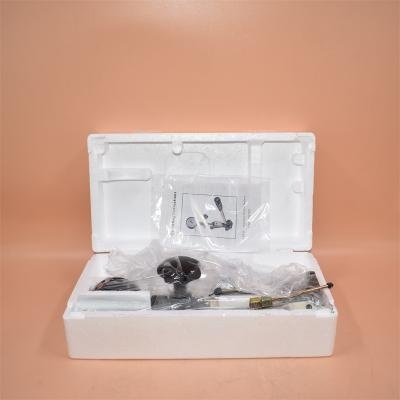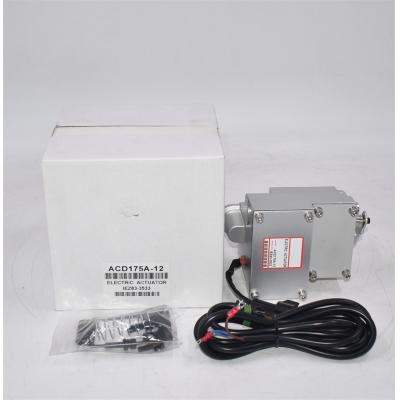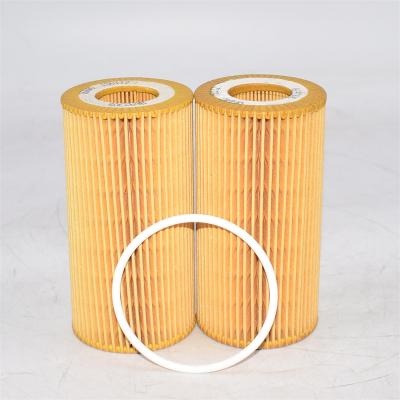Why is there oil in the air cleaner of my car?
Mmm. This shouldn't happen, should it? No, maybe not. Let's take a look at what will cause the car air filter to run out of oil and what you should do.
The air filter of most modern cars is located in the intake housing, which is installed on the top of the engine. It is connected to the fuel injection system (or turbocharger). It is designed to purge the air into the fuel system to mix with the fuel before it reaches the combustion chamber.
The main purpose of the air filter is to remove soil particles, debris, dust and other pollutants before air mixes with liquid gasoline (or diesel) to form steam. When the air filter is blocked by impurities, the fuel efficiency and power output of the engine will be reduced. If the oil blocks the air filter, the engine output may be seriously affected.
The purpose of the air filter is to capture contaminants, but not oil. However, when you use your local service technician to replace the air filter, the technician will point out from time to time that oil is detected in the air filter housing or the used filter.
Although this is not a sign of engine failure or the cause of your immediate panic, it should certainly not be ignored - it may be a pointer to potential problems in the future.
Engine leaks
When the engine is running, the cylinder slides the piston rings into the crankcase. When the piston ring is worn, the piston ring may become loose and cause "oil leakage", which is usually shown by blue smoke from the tailpipe when the car is running. In the early stage of piston ring wear, excessive oil leakage will cause severe pressure in the crankcase. As mentioned above, more oil will pass through the PCV valve and finally enter the air inlet
Usually, air leakage starts from the formation of carbon in the top ring groove, which causes the cylinder to leak, which causes some oil to burn. The combustion of oil produces more annular deposits and more air leakage, as well as more carbon accumulation. Since the piston ring can not be completely sealed on the cylinder wall, it is very natural to have a slight air leakage. However, excessive blowby can cause problems.
Air leakage will eventually damage your engine. You may not be able to detect these effects immediately, but you can certainly do so over time. After the air leak causes harm, you will find that the air leak will cover your oil and gas intake and reduce your engine performance. Blowby gas will also condense into the crankcase and deposit between the cylinder head and cylinder head, thus reducing the effective octane number of gasoline.
You may also hear engine knock, which is a warning of pre ignition. Preignition occurs when the mixture of air and fuel ignites prematurely. The octane number recommended by the manufacturer is always the appropriate level to avoid preignition, but if additional fuel is added to the cylinder due to air leakage, this value is invalid.
The impact on the engine is extremely destructive. As time goes by, it will also damage the spark plug. Oiled spark plugs can catch fire and may cause fuel to build up. This is an unsafe situation and needs to be handled immediately.
Positive crankcase ventilation (PCV) valve blocked
Old cars used to leak air into the atmosphere, but these pollutants have caused damage to the environment. The PCV valve is introduced to control the discharge by redirecting the blow by gas back to the air inlet.
The PCV valve is connected to the intake housing through the (usually) rubber vacuum hose used to release the vacuum in the engine crankcase. Usually, this part is located on the top of the valve cover of the cylinder head, and the pressure flows through the cylinder head from the lower part of the engine, and then is discharged through the air inlet. The PCV valve is similar to the engine oil filter because it will inevitably be blocked by unwanted debris (in this case, engine oil) and should be replaced according to the vehicle manufacturer's recommendations. If the PCV valve is not replaced as required, the excess oil will pass through the PCV valve and reach the intake system.
Aftermarket Air Filter
This is the most common cause of oil in the air filter. This is also completely normal. Some aftermarket air filter brands, including K&N, Volant Primo, Injen High Performance and S&B Intake, provide reusable filters. These reusable air filters are coated with oil from the outside of the filter (the side away from the engine) before use to trap smaller particles.
Blocked oil passage
Another potential cause of engine oil entering the air intake system and eventually blocking the air filter is blocked oil passages. When the engine oil and filter are not replaced as required, this problem usually occurs because of excessive carbon deposition or engine oil sludge in the crankcase. If the oil cannot flow effectively, a large amount of engine oil pressure will be generated, and the excess oil will be forced to enter the air inlet through the PCV valve.
What is the next step?
If you have reached this point but are still not sure what is causing the oil in the air inlet, please consider consulting a professional technician. If you can drive, go to the garage as usual. If you cannot or are afraid, technicians can go to your home to complete on-site inspection, so as to correctly identify the cause of oil in the air filter.
























